Difference Between Jeeva, Ishwara, and Parameshwara
Listen to the audio above
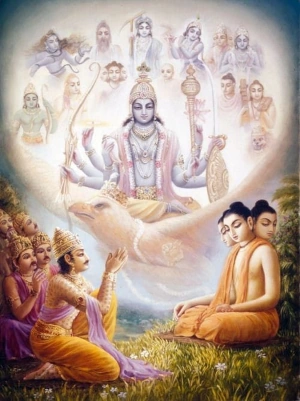
Comments
Transcript
(Click here to read more)
What is the difference between us the living beings and Ishwara? In fact, there are three terms: Jeeva, Ishwara, and Parameshwara. Living being, Ishwara, and Parameshwara. Anything that has got life is a living being, called Jeeva or Prani in Sanskrit. What are the characteristics of Jeeva? Mainly three: suffering, action, and the result of the action; called klesha, karma, and vipaka in Sanskrit. The living being is bound by these three. We think life is to enjoy. But it is not enjoyment but suffering and pain which are inevitable in lif....
Transcript
(Click here)
What is the difference between us the living beings and Ishwara?
In fact, there are three terms: Jeeva, Ishwara, and Parameshwara.
Living being, Ishwara, and Parameshwara.
Anything that has got life is a living being, called Jeeva or Prani in Sanskrit.
What are the characteristics of Jeeva?
Mainly three: suffering, action, and the result of the action; called klesha, karma, and vipaka in Sanskrit.
The living being is bound by these three.
We think life is to enjoy.
But it is not enjoyment but suffering and pain which are inevitable in life.
Is there a single person who has not suffered pain in life, physical pain, or mental pain?
Karma and undergoing its result, both are unavoidable.
Karma at least to sustain life in the body, that is unavoidable.
Jeeva is overpowered by six kinds of waves, the six urmis.
Grief, ignorance, old age, death, hunger, and thirst, these are the six waves.
Ignorance means wrong knowledge and incomplete knowledge.
You know something, but you think you know everything, this is ignorance.
There is a rope but you think it is a snake, this is ignorance.
Someone is evil but you think he is good, this is ignorance.
Jeeva is overpowered by these six waves.
Not just man; someone gives poisoned food to a dog, the dog wags its tail and eats, this is ignorance.
Every living being is prone to act out of ignorance.
Collectively you can say that Jeeva exists in the plane of avidya.
Ishwara is beyond these six.
Ishwara doesn't grieve, and doesn't feel sad about anything.
Ishwara doesn't have any kind of ignorance.
Ishwara doesn't undergo old age.
There is no death for Ishwara.
Ishwara doesn't have hunger or thirst.
But Ishwara has got two powers that Jeeva doesn't have.
Ishwara can manifest whatever he wants merely by wishing.
He doesn't need raw materials, he doesn't have to follow a procedure to create something.
Ishwara will wish, let there be a mountain and a mountain will come into existence then and there.
Ishwara will wish, let there be rain and there will be rain then and there.
Ishwara can decide a sequence of events and make it happen.
If Ishwara wishes that a newborn baby should become a doctor, he will control all the factors and circumstances around that baby for the next 25 or 30 years and make him a doctor.
This is his power of resolve, sankalpa shakti.
Both are different, you see.
Manifestation is instantaneous of a material or a being.
Resolve is for the future and involves a process or a series of events.
Ishwara is in the plane of vidya.
Now, who is Parameshwara?
Parameshwara is beyond all these.
There is neither vidya nor avidya in Parameshwara.
In Parameshwara, there are no waves like those in the Jeevas.
Parameshwara doesn't manifest anything, he doesn't have any resolve.
Whatever you see, feel, think about and whatever is beyond all these, that is Parameshwara.
Parameshwara is endless, limitless.
Both Jeeva and Ishwara have limits.
Both Jeeva and Ishwara exist within Parameshwara.
It will be easier to look at it like this.
Our universe has a creator, Brahma.
All Jeevas of our universe have come out of Brahma.
He is Ishwara for our universe.
Like this, there are millions of universes and each one has a Brahma of its own.
Millions of Ishwaras.
All these Ishwaras have sprung out of Parameshwara.
Someone who rules over, who has the power to control and command is Ishwara.
All the 33 crore Devatas are Ishwaras.
They rule over and control specific aspects of the lives of Jeevas.
But they all exist within Parameshwara.
Imagine a ship with passengers in the sea.
The passengers are Jeevas.
As long as they are inside the ship, they are under the command and protection of the captain of the ship.
Ishwara's role is similar to that of the captain.
If there are a hundred ships, there will be a hundred captains.
Inside the ship also the captain will have so many deputies to assist him.
These are all like the Upadevatas.
Parameshwara is like the vast sea in which the ships exist.
This is the difference between Jeeva, Ishwara, and Parameshwara.
Recommended for you
Mantra For Powerful Communication Skills
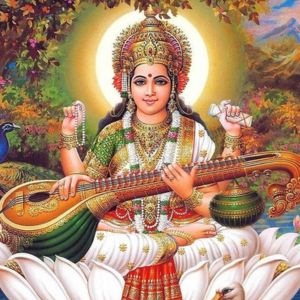
वद वद वाग्वादिनि स्वाहा। vada vada vaagvaadini svaahaa....
Click here to know more..What Is Bhagavan Going To Do Special In Krishnavatara?
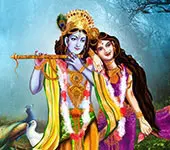
Do you know that Bhagawan has taken birth as the son of Vasudeva and Devaki? Are you aware of this? Because not many knew that it was Bhagawan who h....
Click here to know more..Vakratunda Stava
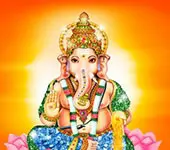
namastubhyam ganeshaaya brahmavidyaapradaayine. yasyaagastyaayate naama vighnasaagarashoshane. namaste vakratund'aaya trinetram dadhate namah'. chatur....
Click here to know more..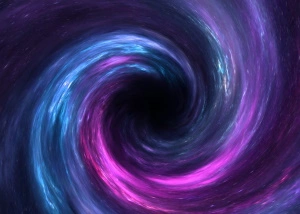
English Topics
Mystique
Click on any topic to open
- 31 Death is a New Beginning
- 30 Kinetic Energy, Potential Energy, And The Universe
- 29 What Is The Need For Bhakti Yoga?
- 28 How does it feel when Kundalini is awakened?
- 27 Why Rudra Is Saluted Twice
- 26 Difference Between Jeeva, Ishwara, and Parameshwara
- 25 Some Folk Beliefs In Ancient Maharashtra
- 24 What Is Vedanta?
- 23 Who Will You Be In Your Next Birth?
- 22 Garbha Upanishad
Please wait while the audio list loads..
30
Ganapathy
Shiva
Hanuman
Devi
Vishnu Sahasranama
Mahabharatam
Practical Wisdom
Yoga Vasishta
Vedas
Rituals
Rare Topics
Devi Mahatmyam
Glory of Venkatesha
Shani Mahatmya
Story of Sri Yantra
Rudram Explained
Atharva Sheersha
Sri Suktam
Kathopanishad
Ramayana
Mystique
Mantra Shastra
Bharat Matha
Bhagavatam
Astrology
Temples
Spiritual books
Purana Stories
Festivals
Sages and Saints
